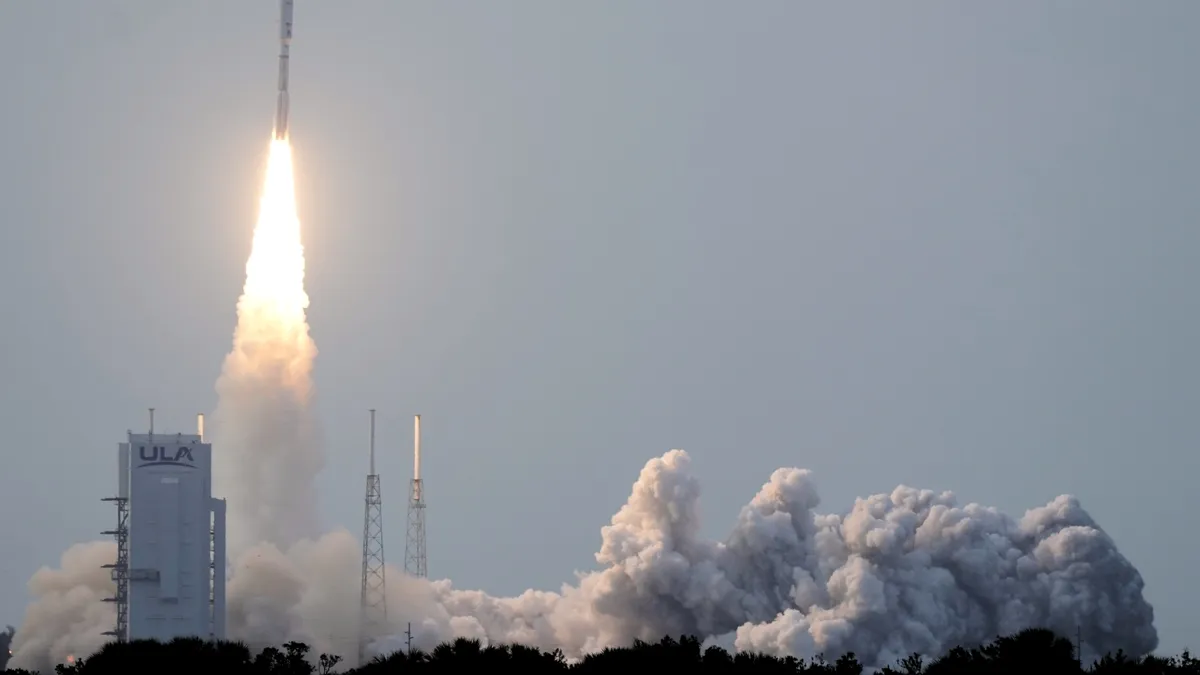
CAPE CANAVERAL, Fla. — In a significant step towards enhancing global internet connectivity, Amazon successfully launched its first batch of internet satellites into orbit on Monday. This launch introduces Amazon's Project Kuiper to the competitive mega constellation market, which is currently dominated by SpaceX and its extensive network of Starlink satellites. The mission was executed using the United Launch Alliance's Atlas V rocket, which carried 27 of Amazon's Project Kuiper satellites, named after the distant regions of our solar system beyond Neptune.
Once deployed, the newly launched satellites are expected to reach an operational altitude of nearly 400 miles (approximately 630 kilometers) above Earth. This launch follows two earlier test satellites dispatched into orbit in 2023, also utilizing the Atlas V rocket. Project officials have indicated that significant upgrades were implemented in this latest version of satellites, enhancing their performance and capabilities.
In response to growing concerns from the astronomical community regarding the interference caused by satellite constellations, the new Project Kuiper satellites are uniquely coated with a mirror film. This design is intended to scatter reflected sunlight, thereby minimizing disruptions for stargazers and astronomers. The opposition from astronomers stems from the rapid proliferation of low-orbit satellites, which can obstruct celestial observations and increase the risk of satellite collisions.
Founded by Jeff Bezos, who now oversees his own rocket company, Blue Origin, Amazon has ambitious plans to launch more than 3,200 satellites as part of Project Kuiper. The primary goal is to deliver fast and affordable broadband service worldwide. In contrast, SpaceX, led by Elon Musk, has already deployed over 8,000 Starlink satellites since 2019, marking its 250th launch this past Sunday. Currently, more than 7,000 Starlink satellites continue to orbit at an altitude of around 300 miles (roughly 550 kilometers) above Earth. Meanwhile, the European-based OneWeb constellation consists of hundreds of satellites operating at even higher altitudes.
To support Project Kuiper, Amazon has secured numerous rocket launches from both United Launch Alliance and Blue Origin, among others. Rajeev Badyal, Vice President of the Project, highlighted the importance of in-flight experiences, stating, “There are some things you can only learn in flight despite extensive testing on the ground.” He emphasized that this mission marks just the beginning of their journey in the satellite communication sector.
The initial launch attempt earlier this month was postponed due to adverse weather conditions, but the team successfully secured another opportunity in the launch lineup at Cape Canaveral Space Force Station for this historic liftoff.